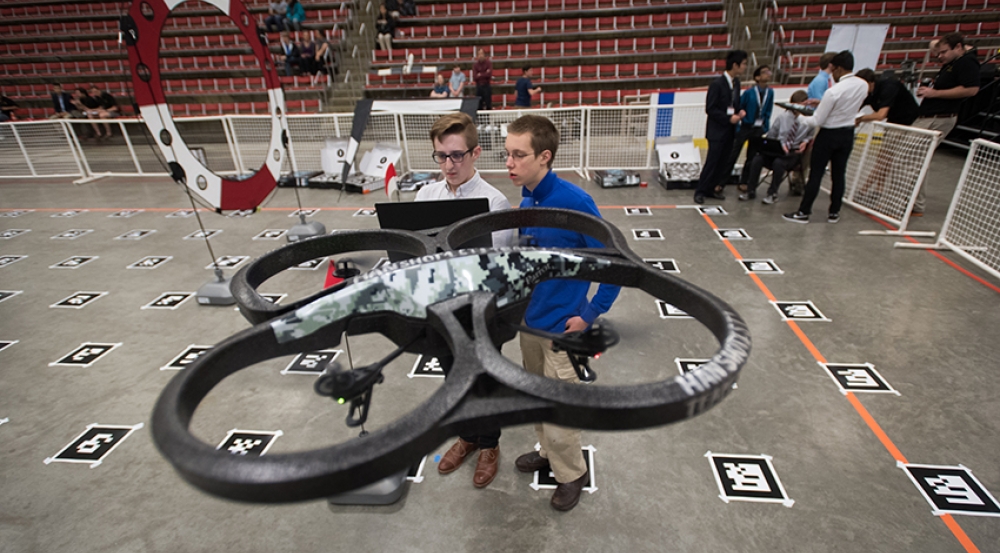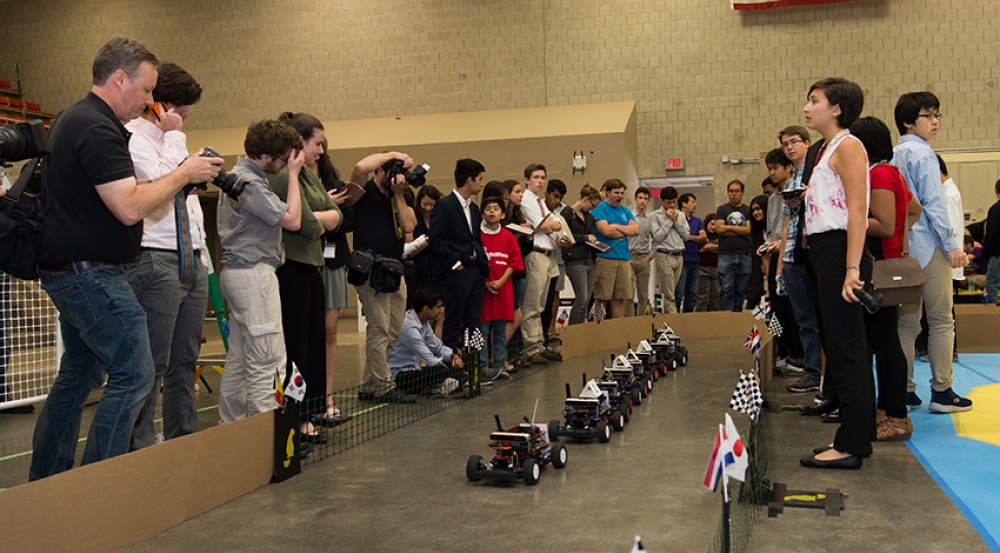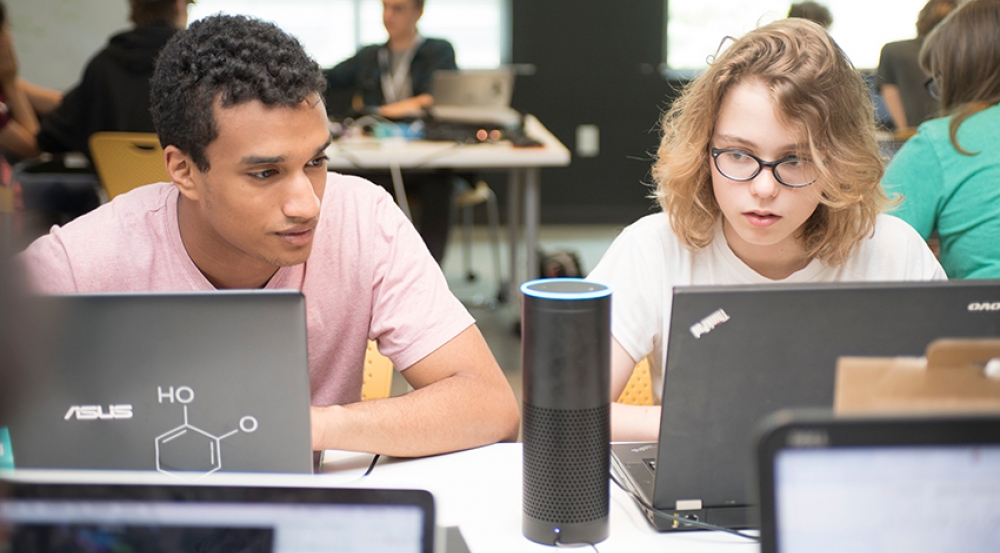Summer program inspires a new generation of engineers

On August 6, the Johnson Ice Rink at MIT was abuzz. Self-driving racecars whined as they sped around a racetrack, autonomous quadcoptors whirred overhead as they dodged aerial obstacles, and cheers from hundreds of spectators became a background hum. This flurry of activity was the finale of the four-week Beaver Works Summer Institute (BWSI), an educational outreach collaboration run by MIT and Lincoln Laboratory for rising high school seniors.
Now in its second year, BWSI expanded its reach to include two new courses and nearly twice as many students. In 2016, the intensive summer program offered a Rapid Autonomous Complex-Environment Competing Ackermann-steering Robot (RACECAR) course to 50 students, while this year it offered additional classes as well: one on building autonomous unmanned aerial vehicles (UAVs) and another on building cognitive personal assistants.
Back in February, interested students selected one of the three courses and applied to the program through a rigorous application process that included the completion of an online precourse and the submission of standardized test scores, a transcript, recommendations, and several essays. The 98 students who were selected spent four expenses-paid weeks at MIT, working in teams to tackle complex engineering problems with the help of professors and Laboratory staff acting as organizers, instructors, guest speakers and mentors.

The RACECAR course was an expanded version of the 2016 BWSI curriculum. It gave students the opportunity to program robotic cars—using tools such as Robot Operating System (ROS), Python, and Open Computer Vision (Open CV) to enable the cars to maneuver through a racecourse.
Students in the UAV course learned about flight principles, computer vision, and motion control in order to build, program, and race quadcopters capable of navigating an aerial obstacle course. "The final UAV race was a tremendous success," said BWSI instructor Michael Pavel of the Laboratory's Tactical Defense Systems Group. "The students eagerly tackled the final challenges, took the inevitable setbacks in stride, and came up with some unique solutions to finish the race."
The cognitive assistant class utilized the fundamentals of artificial intelligence to build cognitive assistants. The class taught students how to work with audio, visual, and linguistic data; what the fundamentals of deep learning are; and how to customize their own cognitive assistants by using Amazon's Alexa.

"BWSI is a truly life-changing experience, and I am humbled to have taken part in it with the nation's best engineering students," said James Lu, a Dartmouth High School senior in the UAV program. "Besides preparing me for my college career in electrical engineering, BWSI provided me with what high school education missed: a project-based, collaborative engineering environment."
This educational gap is what motivated Benjamin Smith, a technical staff member at Lincoln Laboratory, to join BWSI as the lead instructor for the UAV course. "I wanted to get involved with the educational aspect of the course because I think there is a large gap that exists in our current educational system where application of fundamental scientific concepts to real-world problems is seriously lacking," Smith said. "I think that this program can give students the ability to reinforce the tools they learn in school by putting them to practical use."
Organizers plan to continue this mission and expand BWSI again next year, adding four additional classes and accepting about 50 more students.